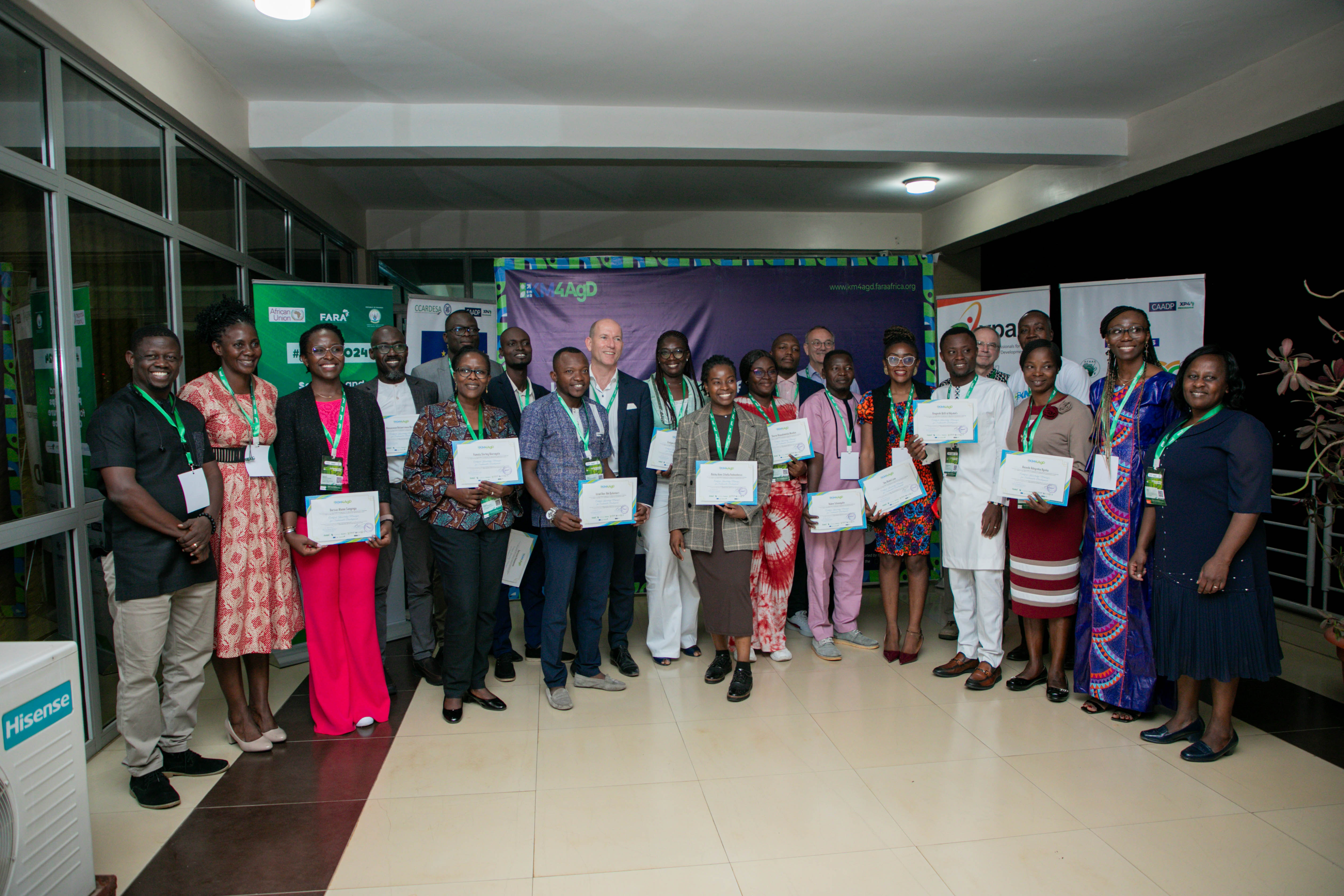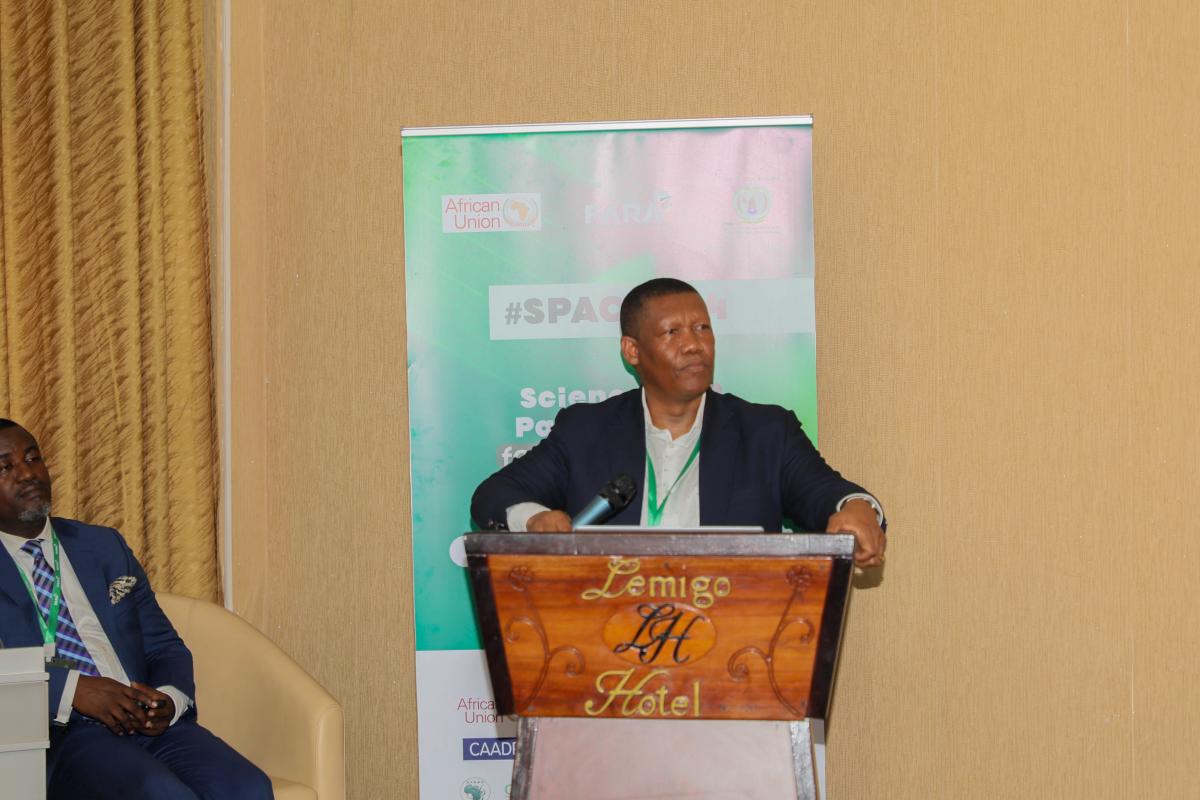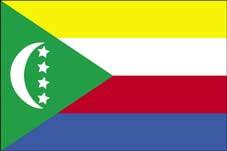CAADP-XP4 Hosts Fourth Annual KM4AgD Conference in Kigali, Rwanda

By Benjamin Abugri & Bridget Kakuwa-Kasongamulilo
The CAADP-XP4 Consortium, in collaboration with CGIAR, YPARD, and some National Agricultural Research Institutes (NARIs) from West, South, and Central Africa, successfully hosted the fourth annual Knowledge Management for Agricultural Development (KM4AgD) Conference at the Lemigo Hotel in Kigali, Rwanda. This pivotal event, held from July 29 to 31, 2024, provided a platform to advance agricultural research and innovation across the continent, emphasizing Indigenous knowledge, climate-relevant agricultural transformation, and sustainable development.
In his opening remarks, the CAADP-XP4 Coordinator at CCARDESA, Dr. Baitsi Podisi, speaking on behalf of the Consortium, praised the organizations for their exceptional work. "We need to adopt standards that will make KM a profession. We are happy to be part of this initiative. We have also tapped into the expertise of the best organizations that have helped us with the training," he stated. He urged participants to integrate their newly acquired knowledge into their respective organizations and emphasized the importance of accurate information packaging for agricultural decision-making. He also acknowledged the EU, IFAD, and other partners for their continued support, expressing optimism for positive outcomes from the KM4AgD Challenge and Conference.

CAADP-XP4 Coordinator, Dr Baitsi Podisi
Mr. Benjamin Abugri, speaking on behalf of the CAADP-XP4 Knowledge Management Working Group and Prof. Andreas Brandner, the lead facilitator and Executive Director for the Knowledge for Development Partnership (K4DP), highlighted that the conference aimed to validate KM concepts and briefs developed by participants, recognize their achievements, induct 21 new members into the Community of Practice, and discuss the draft outline of the inaugural 2025 Knowledge Management Report for Africa. The event also fostered discussions on advancing knowledge management in Africa’s agri-food systems and generated stakeholder commitments.

FARA KM Cluster Lead, Mr. Benjamin Abugri
During the conference, graduates presented various briefs on capturing Indigenous Knowledge, knowledge hubs, knowledge linkages and partnerships, and knowledge inclusion, as well as presented draft organizational and national KM strategies from the National Agricultural Council (ARC) of South Africa, National Agricultural Research and Development Institute (NARDI) of Botswana, Ministry of Agriculture of the Democratic Republic of Congo, Centre National de Recherche Agronomique (CNRA) of Cote d’Ivoire, Institut de Recherche Agricole Pour le Developpement (IRAD) of Cameroun, Institut Tchadien de Recherche Agronomique pour le Développement (ITRAD) of Chad and the Agricultural Research Council of Nigeria (ARCN).
Representing the Sustainable Land Management for Sub-Saharan Africa (INTERFACES) intervention, Wilfrid Adjimoti discussed exploring women's land access challenges and the importance of secure land tenure for economic and social empowerment. Dorcas Sanginga Alame highlighted pathways to organic fertilization through the documentation of successful models for crop residue management. Melika Voudounhessi and Kisito Gandji focused on advancing the right selection of crops considering climate and soil data. At the same time, Narcisse Yehouenou presented micro-dosing as a promising sustainable soil fertility management practice for food security in sub-Saharan Africa. Other key highlights of the presentation of outputs from the 2024 KM4AgD Challenge at this conference were the Knowledge Management Strategies for Civil Society Organizations by Mabel Shu and for the IITA and ILRI of the CGIAR presented by Bosede Ayinla, Sharon Abiodun, Pamela Wairagala and Marius Assogba.
The 21 graduates presented their knowledge management products (briefs and strategies), showcasing their hard work and dedication. The outputs from the KM4AgD Challenge were validated, highlighting the innovative approaches taken by the participants.

Certified KM for Agricultural Development Managers
Mrs. Bridget Kakuwa-Kasongamulilo and Mr. Benjamin Abugri presented the work CCARDESA and FARA have been doing regarding Malabo in the SADC region and the country-level promotions they have conducted in seven SADC countries since 2022. Mr. Peter Ballanytne, ILRI KM Consultant, spoke on the history of knowledge management in Africa, emphasizing the evolution of access to knowledge, from CD-ROMs and microfiche to free access portals and the Wayback Machine.
Deputy Minister of Agriculture in Sierra Leone, Dr. Theresa Teneh Dick, emphasized the importance of accurate information dissemination in her speech before presenting certificates to the graduates. "Don't disseminate the wrong news. Be fair enough to speak the truth," she urged, highlighting the value of integrity in communication. She congratulated the 21 graduates for attaining certification as knowledge management for agricultural development managers. Graduates received their certificates with jubilation and excitement, recognizing their commitment to advancing knowledge management in agriculture. These graduates were inducted into the Community of Practice for KM and Artificial Intelligence (AI), ensuring ongoing collaboration and knowledge sharing. They officially have become Fellows of the KM4AgD Centers of Excellence at both continental and regional levels and would champion KM initiatives in their countries.

Deputy Minister of Agriculture for Sierra Leone, Dr. Theresa Teneh Dick
Ms. Tsehay, KM and Communications Specialist at ILRI, led a brainstorming session to inform the next research agenda of the CAADP-XP4 Consortium and CGIAR, providing a clear direction for future efforts. The conference also explored emerging issues and opportunities in KM for Africa’s agri-food systems, generating political and stakeholder support for integrating knowledge management as a development strategy.
The 2024 KM4AgD Conference marks a significant step towards building Africa's knowledge-based agricultural development framework, including a significant contribution to the AUC-led Post-Malabo discussions on Knowledge Management, Advocacy, and Communication under Working Group 12. CAADP-XP4 and its partners are committed to driving sustainable agricultural transformation across the continent by fostering collaboration, enhancing capacities, and integrating knowledge management strategies.
Links to Conference Recordings:
Link to Conference Pictures - https://flic.kr/g/3gbVXP
For more information about the KM4AgD initiative, visit www.km4agd.faraafrica.org
The authors are members of the CAADP-XP4 Consortium Knowledge Management Technical Working Group.
























































